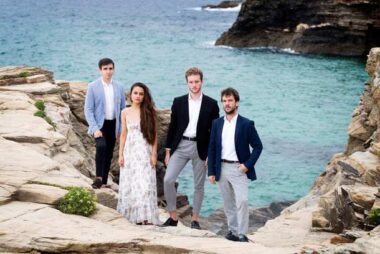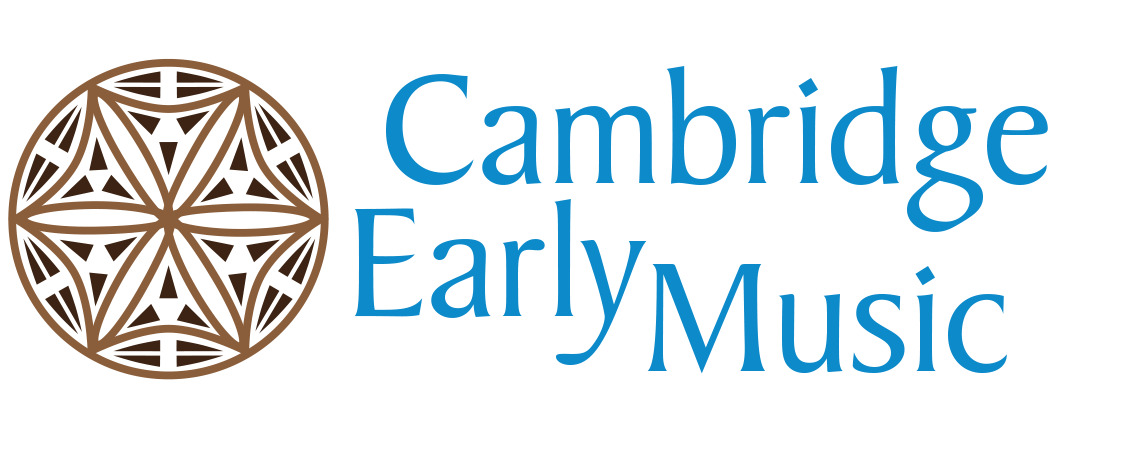Members from Cantoría tell us what to expect from their concert: ‘El Fuego’ on 10 April.

Tell us about how the ensemble was formed.
Cantoría originated in connection with the ECOS Festival of Sierra Espuña, in the mountains of Murcia in southern Spain. We were a group of young people who wanted to apply the emotional intensity and interpretative style of Monteverdi’s madrigals to Spanish Renaissance music. We were very interested in genres such as the ensalada [‘salad’(!); a kind of humorous quodlibet or medley] and villancico; the vivacity and wit of these repertories and their ability to recall the emotion of the people of that time inspired us to found Cantoría.
We continued studying at the ESMUC, the Superior School of Music in Barcelona, and we managed to enter a European program called EEEmerging, where we were supported and were able to visit more than 15 different countries—including the United Kingdom, and in particular the National Centre of Early Music in York.
Since that program, we have been able to explore our music, which we will be performing in this concert. We hope that the audience in Cambridge enjoys it greatly.
What can the audience expect from ‘El Fuego’?
The music of the Spanish Renaissance is full of contrasts. We are going to sing villancicos, which are the ancient songs of the courts of the Catholic Monarchs, Charles V and Philip II, and we are going to relate them to the ensaladas. The ensaladas are a very amusing kind of theatrical work that tell stories with political and religious purposes; and they also allow us to hear aspects of the popular music of that time.
We believe that the audience attending the concert will discover a different way of singing from what they are accustomed to, and we hope they leave full of joy.
What’s been your personal favourite concert the ensemble has given?
Last summer we performed in an outdoor concert in Murcia (because it gets very hot there) and we sang one of these ensaladas that was about a shipwreck. We couldn’t finish the ensalada because it started raining—which is very, very rare in southern Spain. It was very funny because the audience started laughing, and we had to speed up the ensalada until it finished at almost double the usual tempo.
Everyone left with a smile, even though we had to finish a little earlier than expected, but I remember it with a lot of fondness. Hopefully in this concert, though, we can maintain the initial tempo!
Do you have links to Cambridge?
This will be the first time that any of the four of us have been in Cambridge, though for me it’s very exciting because of the city’s history and heritage. We have a lovely relationship with the UK; we’ve been doing artistic residencies in York, and we’ve also sung at other festivals in the area.
Next autumn we’ll be at the Wigmore Hall in London and the Brighton Early Music Festival. So for us, this concert is about continuing to explore the relationship between our cultures, showcasing the beauty of Spanish music with a Mediterranean interpretation!
It’s our 30thanniversary this year. If money and time were no object, how would you choose to celebrate with us?
Our dream is to explore the historical and cultural relationship between the UK and Spain—and not only from the perspectives of wars and nobility. Obviously, there have been many programmes around the Spanish Armada, and we are also preparing a programme about Queen Catherine of Aragon and her daughter Mary.
Beyond this, however, the relationships between people matter hugely to us: cultural exchanges, artistic exchanges, Spanish musical pieces that were printed in England, or English music that reached Spain. For example, there were several Spanish musicians in the Baroque period who performed in the courts of English kings.
We would also love to explore the current artistic relationship. For instance, Spanish polyphonic music has traditionally been interpreted by the great English choirs. Some of these have shaped our understanding of the sound of that music, yet equally many are now seeking a more Iberian way to approach this repertory. It would be wonderful to teach and share it there. We would love to share cultural coincidences in Cambridge in celebration of CEM’s anniversary.
